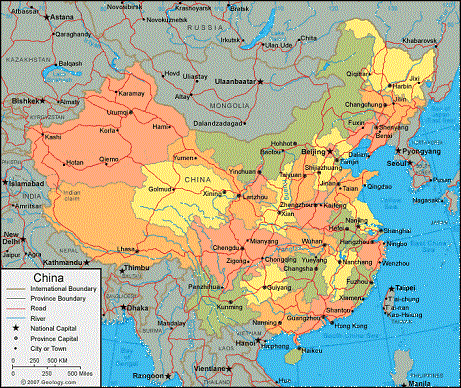Jinping beyond a decade?
October 7, 2017 | Expert Insights

As China gears up for the 19th National Congress, questions continue to swirl around if President Xi Jinping will serve for more than a decade.
Background
The history of China can be traced back to 1500 BC under the Shang dynasty. Much of China’s culture was developed during the Zhou dynasty (1046–256 BC). The Qing dynasty which ruled from 1644 to 1911/12, was overthrown due to a military uprising. The provisional government of the Republic of China was formed in Nanjing on 12 March 1912.
The 1st National Congress of the Communist Party of China was held in Shanghai and Jiaxing between July 23 and August 2, 1921. It happens once every five years and leaders of the Communist Party of China come together to discuss the future of the nation. Decisions taken during this meeting will indicate to the world on what is likely to be China’s economic policy in the coming years.
The Chinese President Xi Jinping has made tackling corruption one of his main governing agendas. In 2016, the government announced that in the span of three years, one million officials had been punished for corrupt practices. Those caught in the past range from low ranking officials to top brass.

Analysis
On October 18, China will hold its 19th National Party Congress. This meeting is one of the most important political congregations in the nation. The future of several party leaders will be decided during this event. The congress will reveal whether Wang Qishan, who’s considered the second most powerful man in China will continue to serve in the seven-man Politburo Standing Committee.
It will also be a time to choose a successor for the current Premier Xi Jinping. Currently, it is all but a foregone conclusion that Jinping will be elected for a second five-year tenure. He is viewed as a strong political leader.
Additionally, the list of probable successors to Jinping seem to be quietly thinning. Former Chongqing party boss Sun Zhengcai who was considered a rising star within the party was taken away for questioning by party anti-graft inspectors on July 14, 2017. There is no other stand out leaders who could be in line after Jinping. If no new party member is elevated to the Politburo Standing Committee, then it would the clearest signal that Jinping is here to stay. The Politburo Standing Committee is the nation’s highest decision-making body. It is possible that this means that he will looking at securing a third term.
Hu Chunhua, party chief of Guangdong province, and Sun promoted to the Politburo in 2012, are the youngest members of the 25-person decision-making body, and have since been widely viewed as the possible successors to Xi and premier Li Keqiang, the party’s No. 2 official. Sun and Hu were looking likely to be elevated to the seven-person PSC during the upcoming congress, and eventually replace Xi and Li during 2022’s congress. But now Sun is dead politically.
Chen Daoyin, a political scientist at Shanghai University of Political Science and Law was quoted by SCMP as stating, “Xi has decided to make some changes and has accumulated power over five years as a result of the inefficacy of governance when the central leadership’s clout was divided among nine Politburo Standing Committee members in Hu Jintao’s era.”
Assessment
Our assessment is that Jinping’s future is tied not only to the upcoming Congress but also to Qishan. Generally, members of the Politburo Standing Committee retire if they are 68 or above during the national congress. If Jinping makes the exception for Qishan, then it’s likely he will make the exception when he himself seeks a third term. At that time, he will be 69 years old. We predict President Xi will seek the third term.








Comments